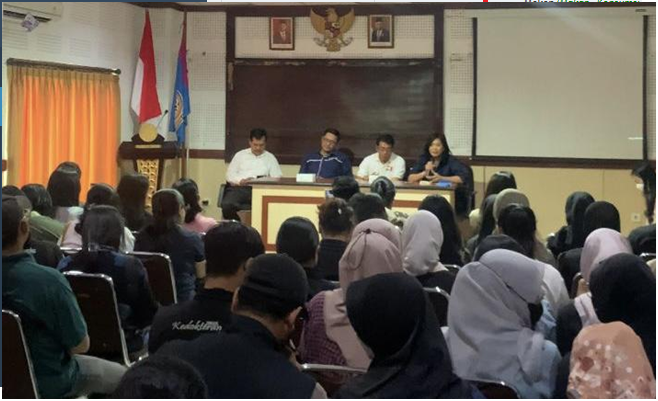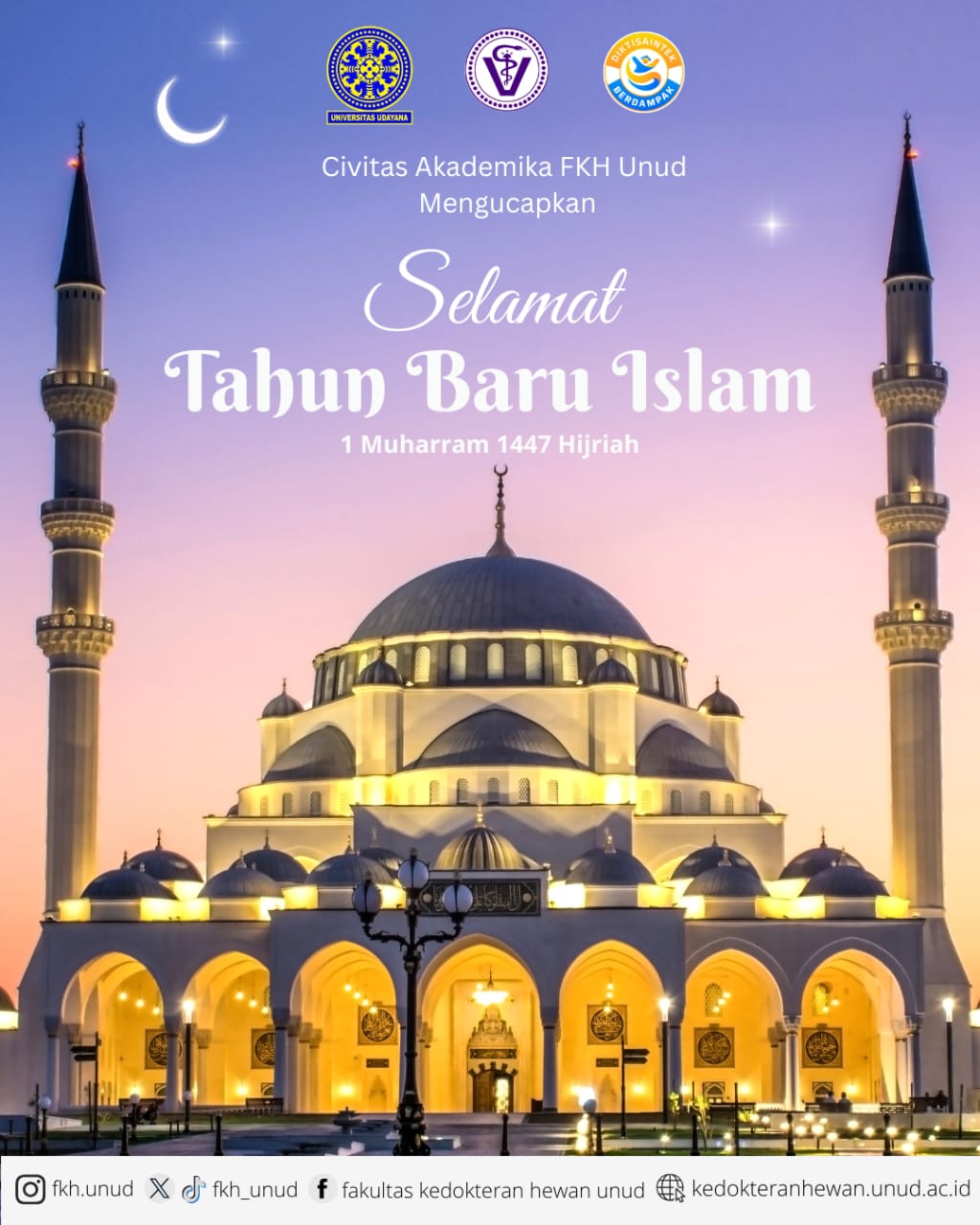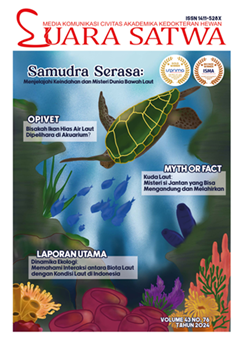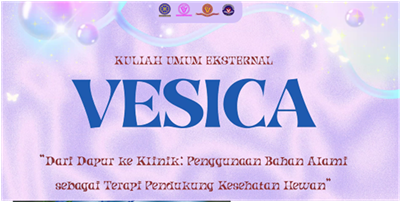Commemorating Eid al-Adha 1445 H, FKH Unud Becomes One of the Front Guards to Maintain the Quality of Sacrificial Meat in Bali
In commemoration of Eid al-Adha which falls on June 17, 2024 the Food Defense Office of Denpasar City and Badung Regency collaborated with the Faculty of Veterinary Medicine (FKH) at Udayana University to participate in the antemortem and postmortem (AMPM) inspection of sacrificial animals. The implementation of the AMPM inspection also involved collaboration with the Indonesian Veterinary Medical Association (PDHI) Bali branch. The volunteer in this activity consisted of 200 students, including undergraduate students from the 2022, 2021 cohorts, as well as students from the Veterinary Professional Program (PPDH).
The series of sacrificial inspections began with a briefing session on Saturday, June 8, 2024, held in the Meeting Room on the 1st floor of FKH Unud, Sudirman Campus. This briefing aimed to provide understanding to students involved in the AMPM inspection. The event was attended by the Vice Dean III of FKH Unud, Dr. drh. I Wayan Sudira, M.Si., representatives from the Food Defense Office of Denpasar City and Badung Regency, and lecturers of the Veterinary Public Health course at FKH Unud. This year’s AMPM sacrificial fields: Prof. Dr. drh. I Wayan Suardana, M.Si., drh. Kadek Karang Agustina, MP., and drh. I Wayan Masa Tenaya, M.Phil., Ph.D. The AMPM inspection is conducted to check the health and control the quality of the sacrificial meat that will be distributed to the community.
The peak of the AMPM sacrificial animal inspection took place from Sunday to Monday, June 16–17, 2024. However, some participants continued the inspection on the following days, from Tuesday to Wednesday, June 18–19, 2024, adjusting the situation and conditions at the slaughter location. The antemortem inspection was conducted o June 16, 2024, on the sacrificial animal by checking body weight, body temperature, indications of disease, fecal condition, and lesions on certain body parts using inspection and palpation methods.
The activity continued with a postmortem examination on June 17, 2024. This examination aims to assess the quality of the slaughtered sacrificial meat, as well as its organs including the spleen, kidneys, heart, lungs, and liver. The method employed in this examination involves palpation and incision of the carcass using a scalpels and knives, to check for indications of worm disease or lesions.
The examination of sacrificial animals took place 103 mosques and prayer halls scattered throughout the districts of Denpasar City, including North Denpasar, South Denpasar, East Denpasar, and West Denpasar. Additionally, the examination was conducted at 69 mosques and prayer halls across the districts of Badung Regency, namely South Kuta, Kuta, North Kuta, Mengwi, Abiansemal, and Petang.
Although 90% of the sacrificial animals examined during the postmortem were declared healthy, officials front the department and students still found several cases of sick animals. These cases include the discovery of Fasciola spp., or liver flukes, paramphistomum worms in the rumen, and hemorrhages in the lungs. Meat that showed indications of disease, such as worms or lessions, was discarded to prevent distribution to the public.
During the AMPM examination, several challenges were encountered, such as miscommunication with the sacrificial commite regarding the timing of animal slaughter, and the mixing of meat and organs from sick animals with those from healthy ones. However, despite these challenges and the bustling field conditions, the Iduladha AMPM examination activities this year were carried out smoothly until the end of the event.
Through the implementation of this AMPM examination, the quality and health of sacrificial animals can be better ensured for the people who consume them. For the future, it is hoped that the AMPM examination activity by FKH Unud will continue in the future, while also maintaining a close partnership with the relevant authorities as a direct contribution from FKH Unud to the community, especially in the Bali region.
Author : Cok Is & Kania LPM SS




UDAYANA UNIVERSITY